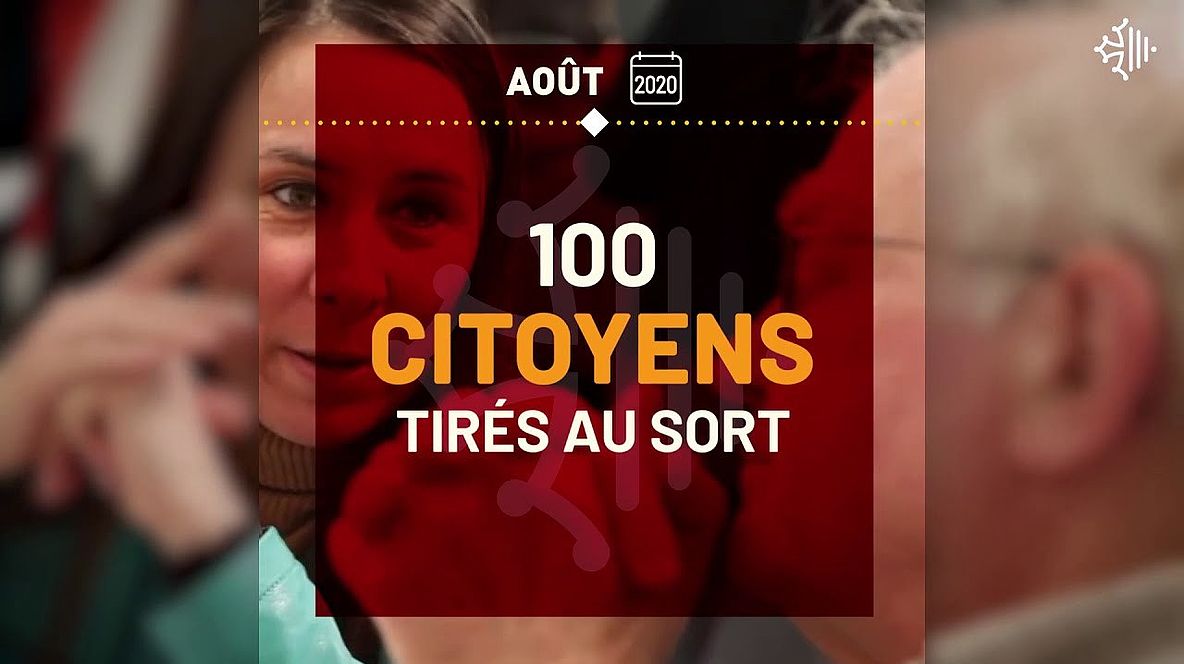300 proposals on "Green New Deal"

On 3 October 2020, the Citizens' Assembly on a Green New Deal in the French region of Occitanie presented around 300 proposals. 52 of these recommendations have been identified as priorities. These include: organising citizen monitoring to oversee the implementation of the Citizens' Assembly's proposals; halting urban growth; simplifying administrative procedures; promoting the energy renovation of buildings; revitalising cultural structures in rural areas; and bringing small railway lines back into service.
As part of a "Green New Deal", the region had convened a citizens' assembly for the first time. A group of one hundred residents was randomly selected to develop ideas for the future of the region. The structure of the region is to become more resilient, equitable and sustainable.
As a follow-up to the national climate citizens' assembly "Convention Citoyenne pour le Climat", the parliament of the region had decided to apply this participation tool at the local level. One hundred inhabitants of the region, representative of the diversity of the population, were selected by sortition. "This project will allow residents to participate fully in the preparation of the Green New Deal, the regional transformation and development plan. Citizens will be given the mandate to reflect on the changes needed to transform the system and become more resilient," Carole Delga, President of the Region, had announced on the decision.
"Involving people"
Assembly members could address any issues they wished, as long as they fell within the Region's remit. "We cannot invent and realise the next world without mobilising and involving people," said Armel Le Coz, co-founder of the Démocratie Ouverte network, an organisation working for the renewal of democracy, which accompanied the entire citizens' process.
In order to obtain the most balanced and representative assembly possible, the selection was based on socio-economic, residential, age and professional criteria, while respecting gender equality. The aim was to create a miniature representation of the region. The random selection had started on 20 July and lasted for a month. The work of the citizens' assembly had begun on 10 September. The compilation of the citizens' assembly was entrusted to the polling institute IRS Quality. The random selection took place by telephone. The basis was the data of 50,000 inhabitants of the region, drawn from a total number of 1.3 million people.
Meeting on seven days
The 110 randomly selected citizens were invited to three working sessions in September and October. In total, the participants worked for seven days. There were two three-day sessions for debates and meetings with experts and one final day for decision-making. Each participant received an expense allowance. A steering committee and three citizens were responsible for ensuring the smooth running of the discussions and the legitimacy of the vote resulting from this work. On 3 October 2020, the 100 participants of the Convention Citoyenne Occitanie had decided on their recommendations.
All the recommendations that emerged from the Citizens' Assembly were put to the vote of the citizens of the region in a citizens' survey. This consultation took place from 16 October to 8 November.In the end, the selected recommendations were added to the final version of the Green New Deal. This plan for an ecological transformation was finally debated in parliament in November and December 2020. The members of the Regional Council thus took the final decision on the implementation of the proposals of the lot citizens.
The voting questions
These are the issues on which the voters were able to express their priorities in the citizens' survey
Sustainability
- Promotion of soft mobility (cycling, walking, etc.) and ecomobility (public transport, electric vehicles, car pooling, car sharing, etc.)
- Reopening of railway lines
- Conversion to organic or ecologically responsible agriculture
- Promoting circular economy (recovery, recycling, etc.) and combating waste
Urban-rural solidarity
- Development of transport and interconnection of different means of transport
- Facilitating the maintenance and establishment of local shops and public services
- Supporting the creation of businesses and engaging in the relocation of economic sectors
- Maintaining a local and high quality supply of services
- Revitalising culture
Participation and citizenship
- Participation of randomly selected citizens to participate in policy making.
- Organise citizen scrutiny to ensure that citizen suggestions are respected.
- Simplifying administrative procedures
- Supporting civic education activities
Selection of conference themes
In addition, voters were able to select two topics on which to hold conferences in 2021 with the participation of citizens. The proposed themes:
- Protection of populations facing the consequences of climate change (floods, drought, hurricanes...).
- Deployment of the 5G mobile phone standard in Occitanie
- New jobs of tomorrow
- Right to housing
- Renewable energies
- Digital education
- Water resources
- Running the motorways
- Democratic relations between elected representatives and citizens and abstention from voting
- Well-being at work
- Safety of people and property
The survey was open to all residents aged 15 and over, both online and in town halls.
The Occitanie region was created in 2016 as a political entity through the merger of the former Languedoc-Roussillon and Midi-Pyrénées regions. Around 5.7 million people live in the region, which borders on Spain.
More Information: Convention Citoyenne pour l'Occitanie